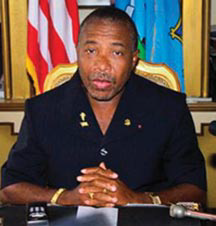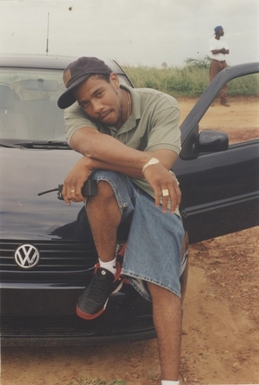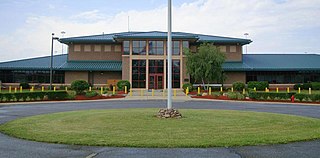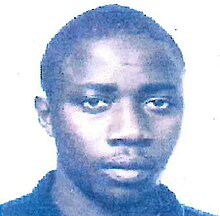Universal jurisdiction is a legal principle that allows states or international organizations to claim criminal jurisdiction over an accused person regardless of where the alleged crime was committed, and regardless of the accused's nationality, country of residence, or any other relation to the prosecuting entity. Crimes prosecuted under universal jurisdiction are considered crimes against all, too serious to tolerate jurisdictional arbitrage. The concept of universal jurisdiction is therefore closely linked to the idea that some international norms are erga omnes, or owed to the entire world community, as well as to the concept of jus cogens – that certain international law obligations are binding on all states.

Charles McArthur Ghankay Taylor is a Liberian former politician and convicted war criminal who served as the 22nd president of Liberia from 2 August 1997 until his resignation on 11 August 2003 as a result of the Second Liberian Civil War and growing international pressure.

The Doctors' Trial was the first of 12 trials for war crimes of high-ranking German officials and industrialists that the United States authorities held in their occupation zone in Nuremberg, Germany, after the end of World War II. These trials were held before US military courts, not before the International Military Tribunal, but took place in the same rooms at the Palace of Justice. The trials are collectively known as the "subsequent Nuremberg trials", formally the "Trials of War Criminals before the Nuremberg Military Tribunals" (NMT).
Trial in absentia is a criminal proceeding in a court of law in which the person who is subject to it is not physically present at those proceedings. In absentia is Latin for "in (the) absence". Its meaning varies by jurisdiction and legal system.

The First Liberian Civil War was the first in a series of two civil wars within the West African nation of Liberia. It lasted from 1989 to 1997. President Samuel Doe established a regime in 1980 but totalitarianism and corruption led to unpopularity and the withdrawal of support from the United States by the late 1980s. The National Patriotic Front of Liberia (NPFL) led by Charles Taylor invaded Liberia from the Ivory Coast to overthrow Doe in December 1989 and gained control over most of the country within a year. Doe was captured and executed by the Independent National Patriotic Front of Liberia (INPFL), a splinter faction of the NPFL led by Prince Johnson, in September 1990. The NPFL and INPFL fought each other for control of the capital city, Monrovia and against the Armed Forces of Liberia and pro-Doe United Liberation Movement of Liberia for Democracy. Peace negotiations and foreign involvement led to a ceasefire in 1995 but fighting continued until a peace agreement between the main factions occurred in August 1996. Taylor was elected President of Liberia following the 1997 Liberian general election and entered office in August of the same year.
David Roosevelt Johnson was a Liberian who led a rebel group during the country's civil war. He was not a member of the Krahn ethnic group he fought for; however, his wife was Krahn.

Jean-Pierre Bemba Gombo is a politician in the Democratic Republic of the Congo (DRC). He has served as the DRC's Vice Prime Minister and defence minister since 2023. He was previously one of four vice-presidents in the transitional government of the Democratic Republic of the Congo from 17 July 2003 to December 2006. He led the Movement for the Liberation of the Congo (MLC), a rebel group turned political party. He received the second-highest number of votes in the 2006 presidential election. In January 2007, he was elected to the Senate.

Joseph Salvatore "Skinny Joey" Merlino is an American mobster and reputed boss of the Philadelphia crime family. He rose to power and seized control of the organization in the mid-nineties after he fought against the John Stanfa faction of the family. He has led the crime family in gambling, loan sharking, drug trafficking, and extortion. In comparison to other traditional mob bosses who shunned the limelight, Merlino has interacted regularly with the media and the public, often openly providing charity and hosting events to benefit indigent people in Philadelphia, drawing comparisons to the similarly outgoing, conspicuous, and ostensibly charitable late New York crime boss John Gotti. He is the son of deceased Philadelphia crime family underboss Chuckie Merlino.
The Völkerstrafgesetzbuch, abbreviated VStGB, is a German law that regulates crimes against (public) international law. It allows cases to be brought against suspects under international criminal law provisions, meaning that suspects can be prosecuted even though both they and their victims are foreigners and the crime itself took place abroad.
Bosco Ntaganda is a convicted war criminal and the former military chief of staff of the National Congress for the Defense of the People (CNDP), an armed militia group operating in the North Kivu province of the Democratic Republic of the Congo (DRC). He is a former member of the Rwandan Patriotic Army and allegedly a former Deputy Chief of the General Staff of the Patriotic Forces for the Liberation of Congo (FPLC), the military wing of the Union of Congolese Patriots.
Joshua Milton Blahyi, better known by his nom de guerre General Butt Naked, is a Liberian evangelical preacher, writer and former warlord best known for his actions during the First Liberian Civil War. During the conflict, Blahyi led a group of soldiers which fought on the side of anti-rebel group United Liberation Movement of Liberia for Democracy (ULIMO) before converting to Christianity and becoming a pastor in 1996.

Charles McArther Emmanuel, also known as Chuckie Taylor, is the son of Charles Taylor, the former President of Liberia. Raised by his mother in the US until he was 16, Taylor Jr. travelled to Liberia in 1994 to live with his father, who in turn enrolled him in the Accra Academy, an elite boarding school in Ghana.

The International Criminal Court investigation in the Democratic Republic of the Congo or the situation in the Democratic Republic of the Congo is an ongoing investigation by the International Criminal Court (ICC) into crimes committed in the Democratic Republic of the Congo (DRC) during the Second Congo War and its aftermath, including the Ituri and Kivu conflicts. The war started in 1998 and despite a peace agreement between combatants in 2003, conflict continued in the eastern parts of the country for several years. In April 2004 the government of the DRC formally referred the situation in the Congo to the International Criminal Court, and in June 2004, prosecutor Luis Moreno Ocampo, formally opened an investigation. To date, arrest warrants have been issued for:

The Federal Correctional Complex, Allenwood is a federal prison complex for male inmates in Pennsylvania, United States. It is operated by the Federal Bureau of Prisons, a division of the United States Department of Justice.

Jucontee Thomas Woewiyu, also known as Tom Woewiyu or Thomas Smith, was the former leader of the National Patriotic Front of Liberia (NPFL), with Charles Taylor.
Alieu Kosiah is a former commander of the United Liberation Movement of Liberia for Democracy (ULIMO) faction, a rebel group that participated in the First Liberian Civil War (1989–1996) which fought against the National Patriotic Front of Liberia, led by Charles Taylor. After the war, Kosiah moved to Switzerland, where he obtained permanent residence.
Hassan Bility is a Liberian journalist, and the founder and Director of the Global Justice and Research Project (GJRP), a non-governmental organization dedicated to the documentation of war time atrocities in Liberia and to assisting victims in their pursuit of justice for these crimes.
Kunti Kamara, a.k.a. Kunti Kumara, Kunti K., Colonel Kamara, CO Kamara or Co Kamara, whose real name may be Awaliho Soumaworo, is a former Liberian rebel militia commander who participated in the First Liberian Civil War as a leader in the United Liberation Movement of Liberia for Democracy (ULIMO).
Civitas Maxima is a non-governmental organisation that documents mass crimes, such as crimes against humanity, genocide, and war crimes, and pursues justice on behalf of the victims, particularly in West Africa.









